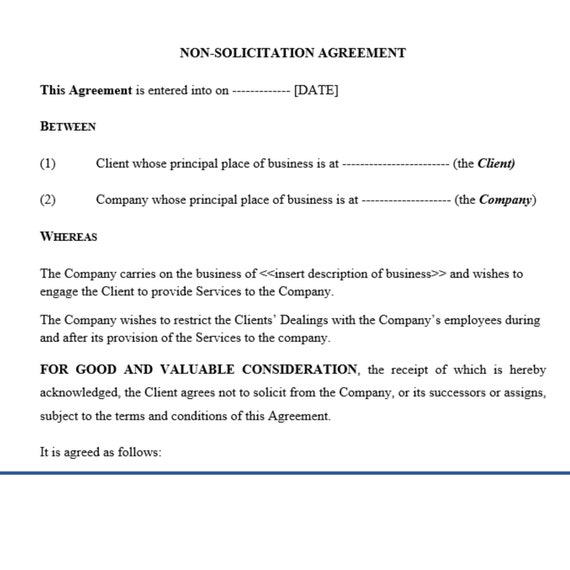
There are many types of organizational structures that a company could adopt. There are three basic types: hierarchical, functional, and matrix. These structures can be helpful depending on the business goals of the organization. These structures can help the company determine which areas it should focus on and what steps to take next. The company's structure will also determine how to allocate resources.
Functional structure
A functional structure can be a great way of organizing a company. This structure allows employees the freedom to concentrate on their areas of expertise. As employees can work together more effectively and take on risks, this can lead to a more productive workplace. This is the most popular organizational structure. It allows employees to focus on their areas and collaborate with other people in similar positions. It can also be scaled, meaning it can work with any size company. However, it comes with its own set of challenges.
Functional structures have the biggest benefit of creating a stable work environment that has a defined job scope. It also promotes organizational efficiency. Several large companies have adopted this structure because it allows departments to function independently and prevent bottlenecks within the company. It also taps into employees' strengths because they are working in their areas of expertise.
Hierarchical structure
Hierarchical structures are the way a company is structured. This structure allows the management to manage the business in a controlled way. The manager reports to the people responsible for different departments and they manage day-to-day operations. This allows senior managers to make promotions from those in lower positions, if necessary. As a company grows, the hierarchy can become more complex.

A pyramid-like structure is used by most companies. It has a small leader at the top and many employees at base. There are also various levels in the middle. However, the modern age has seen a new generation of workers who are dissatisfied with hierarchy. Many companies are now trying to reformulate their hierarchies. One top software company's employee handbook dispenses with managers and favors teams of employees.
Matrix structure
A matrix structure refers to a company's organizational setup, which is broken down into units and reporting relationships. This type of company structure is ideal for companies that have high growth potential and need to quickly produce new products or services. This structure can cause problems with managing existing units and setting priorities.
It is important that managers in a matrix organization communicate effectively with each other. You will also be able to communicate clearly with your managers about the expectations you have for your team. It is also possible to help them work together if they have conflicts. For example, a project manager may see execution as his responsibility, while a product manager or a customer success manager may see the execution of a project as his. The key is to find a balance among all of these responsibilities so that your team can meet your company's objectives. You should teach your managers how to navigate the matrix structure.
Multidivisional structure
A multidivisional company structure allows a company to diversify and increase profitability, while minimizing the risks of concentration. Companies that own multiple businesses will gain from the combined success. Companies that manage multiple businesses will reap the benefits of their combined success.
A multidivisional company structure is common among large companies with many distinct business units. These companies are often organized by products, subsidiaries or projects as their leadership team. Johnson & Johnson, a global company, has many product divisions that each operate as a separate company. Sometimes, divisions are geographically defined. A global corporation might have one division for North America and another for Europe.

Holacracy structure
In addition to its ability to improve organizational agility, Holacracy can also make companies more resilient to change. It is built on principles of collaboration, self-organization, and teamwork. This allows organizations to seize both the opportunities and the challenges. The structure removes the need of heroic managers. Members can discuss ongoing appointments and make informed choices.
In a Holacracy, each person is responsible for decisions involving people and resources. These decisions are made by the person responsible. They must be able find resources and people to help them. However, this structure has been criticized by some organizations. Steve Denning, an author in Forbes, addressed common misconceptions regarding the structure. In response, author Oliver Compagne argued that the differences are not so stark as Denning claimed.
FAQ
How long does it take for a consultant to be established?
Your industry and background will determine the length of time it takes. Most people begin their journey with less than a month before finding work.
Some consultants work for years to perfect their skills, before being hired.
What tax do I have to pay on consulting income?
Yes, tax will be payable on any consultancy profits. The amount you earn depends on your annual income.
If you are self employed, you can claim expenses in addition to your salary. This includes rent and childcare.
You can't deduct the interest on loans, vehicle damage, or equipment costs.
You can only claim back 25% of your expenses if you earn less than PS10,000 a year.
However, even if your earnings exceed this threshold you may still be subject to tax depending on whether or not you are a contractor or an employee.
Pay as you Earn (PAYE) is the most common method of taxing employees. Contractors pay VAT.
Do I require legal advice?
Yes! Yes. Many consultants sign contracts without seeking legal advice. This can create problems down the line. What happens if the client cancels the agreement prior to the consultant's completion? What happens if the consultant doesn’t meet the deadlines specified in the contract.
Avoid any legal issues by speaking with a lawyer.
How much does it take to hire a consultant
Many factors go into determining how much it costs to hire a consultant. These factors are:
-
Project size
-
Time frame
-
Scope of employment
-
Fees
-
Deliverables
-
Other considerations like experience level, geographical location, etc.
How can I become an expert consultant?
First, find a subject you're passionate about. Next, you need to establish relationships. Understanding your clients' needs and operating style is essential. And finally, you must deliver results for them.
While you don’t have to be the greatest at everything, you have to be better than everyone else. You need passion for what your do. It doesn't suffice to say, "I will be a consultant." You have to believe in yourself, and in what you are doing.
What happens when the consultant finishes the job?
After the consultant completes their work, he/she will submit a final summary of the results. This report contains all relevant information, such as project timelines and deliverables.
You will then review the report to determine if the consultant fulfilled your expectations. If you are not satisfied with the consultant's report, you have the option to ask for modifications or to terminate your contract.
Statistics
- On average, your program increases the sales team's performance by 33%. (consultingsuccess.com)
- My 10 years of experience and 6-step program have helped over 20 clients boost their sales by an average of 33% in 6 months. (consultingsuccess.com)
- "From there, I told them my rates were going up 25%, this is the new hourly rate, and every single one of them said 'done, fine.' (nerdwallet.com)
- Over 62% of consultants were dissatisfied with their former jobs before starting their consulting business. (consultingsuccess.com)
- So, if you help your clients increase their sales by 33%, then use a word like “revolution” instead of “increase.” (consultingsuccess.com)
External Links
How To
How Do I Find A Good Consultant?
It is important to understand what you are looking for in a consultant before you can find one. Do you want them helping you improve your website's performance or not? Do you need them to optimize your site so that it ranks higher in search engines' results? You might also want someone to help you determine if your hosting provider is in trouble. After you have decided what services you need, it is time to start looking at potential companies. While there are many consultants that claim to be able provide these services for you, not all of them will. How do you select the right consultant for your project? Here are some considerations when choosing a consultant.
-
Refer to others. This is probably the best way to choose a consultant. It's not a good idea to hire someone you haven't heard of, as you will likely end up paying too much. You don't want to work alongside someone whose reputation hasn't been established. If you are lucky enough to be referred by people you trust, that's awesome! However, even if this is not possible, you might still be able check reviews online. Seek out testimonials from satisfied clients.
-
Ask around. Many people are unaware that hiring a consultant could make a difference. They assume that their current situation is fine and they don’t need changes. This is often incorrect. Even if you have great results right now you probably haven't been keeping pace with new technologies or trends. Your business could be missing out if it relies on outdated methods. Ask around to find a qualified consultant.
-
Make sure to verify their qualifications. No matter how small your project is, it's important to ensure that the consultant you choose has the necessary skills. You need to ensure that the person you hire is qualified to do the job and has sufficient knowledge in the subject.
-
Find out which projects they are best at. While you might assume that everyone can handle everything, this isn't true. You may need to have specific training or education in certain areas. You wouldn't hire someone who can build a WordPress theme if they aren't experts in Drupal. It is the same for programming languages, graphic design, and so on. It is important to inquire about the types of projects that they work on.
-
Be aware of their fees. As we mentioned, it is important to know what they charge. However, you don't need to pay too much. Consultants come in all shapes and sizes. Some charge hourly rates while others bill per project. You can save money by knowing upfront exactly what you will be paying.
-
Find out what they offer. Are they willing to provide free consultations? Will they give you advice on how to set up your own system? Can they guarantee your site will rank higher if you work with them? If you don’t like the information you receive during your consultation, you can cancel it without penalty.
-
Finally, find out if they offer discounts for multiple months or years. Many consultants offer discounted pricing for extended time periods. While you don't necessarily need to commit for a whole year, you can still take advantage of any deals that they offer.